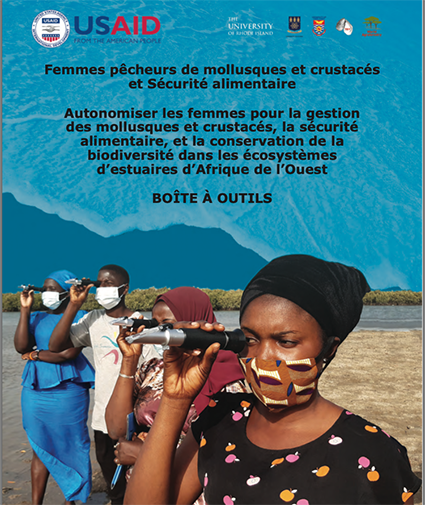Country
Profiles
Country
Networks
Country
Associations

This toolkit responds to an urgent need to facilitate locally driven and locally based livelihoods that enhance rather than degrade natural resources management, benefit women, and engage them in decision making. Coastal estuarine and mangrove areas of West Africa are endowed with a rich biodiversity that serves various ecosystem functions. These include climate change adaptation and mitigation, as well as food security, via the harvest of many estuarine species. Shellfish species comprise a significant portion of the food resources harvested from these ecosystems. As a result, the livelihoods of many coastal inhabitants, particularly women, are closely associated with these systems. Bivalve shellfisheries, primarily cockles and oysters, are the most important to women in West Africa. These livelihoods largely fall within the small-scale fisheries sector, but often go unnoticed in official fisheries statistics, both in volume and value of these harvests. The USAID Women Shellfishers and Food Security project has provided, for the first time, a regional perspective of estuarine and mangrove ecosystem-based shellfisheries in a report titled, “The Estuarine and Mangrove Ecosystem-Based Shellfisheries of West Africa: Spotlighting Women-Led Fisheries Livelihoods” (Chuku, et. al., 2021).
- Author(s)
- Brian Crawford, Karen Kent, Brietta Oaks, Denis Aheto, Ernest Obeng Chuku, Isaac Okyere, Lalisa A. Duguma, Sammy Carsan, Stepha McMullin, Alagie Bah, Kennedy Muthee, Levi Orero, Seth Adu-Afarwuah, Frank Kyei-Arthur, Fatou Janha,Daniel Hicks
- Publisher / Institution
- Women Shellfishers and Food Security Project
- Date published
